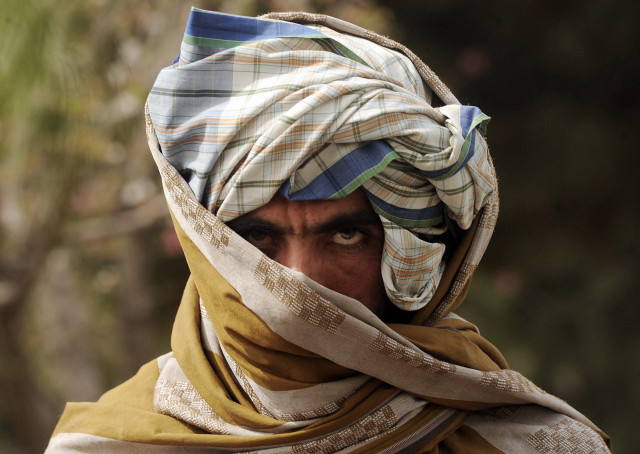The Taliban apologists amongst us
Pro-Taliban, anti-American stance is the political trend in Pakistan today.

The Punjab police chief has hazarded that the attacks in the province could be the Taliban reaction to the reopening of the Nato supply routes by the government. The Taliban also owned up to the attack on the Pakistan Army soldiers near Sialkot looking for casualties that had occurred earlier when a military helicopter crashed into a canal amid rumours that it had been shot down. Earlier, a police picket on Babu Sabu motorway junction in Lahore had been attacked. It is possible that in the coming days, attacks on the ANP will take place in the increasingly vulnerable cities of Peshawar and Karachi.
There is no doubt that the Taliban are a power to reckon with in Pakistan but what should be worrisome is the similarity of worldview between them and the other power centres inside Pakistan. The Taliban have pledged to disrupt the Nato supplies, while the national media is overwhelmingly projecting a near universal opposition to the reopening of the Nato routes. The Difa-e-Pakistan Council (DPC), with elements actually interfacing with terrorists, has been out on the road going to Islamabad, gathering unprecedented popular support from the roadside cities on the strength of distribution of bounties that one of the organisations in the DPC with big money has been distributing. The opposition inside Parliament is up in arms against the reopened route and have joined, at least in spirit, with the clerics of the DPC in attacking the elements of the agreement reached by Pakistan with the US on the new terms of the supply route.
The Chief Justice of Pakistan says Parliament is not supreme — however, everyone knows that it is neither parliament nor judiciary that is supreme but the military, which controls policy inside and outside the country. Its power is so wide-ranging that people believe that if it wanted to stop the DPC from creating a pro-Taliban environment in Pakistan, it could have prevented its long march. This makes governance almost impossible — especially in a country where a sizeable chunk thinks that the Taliban view is the right view. As the Supreme Court goes after the prime minister, the weakened parliament is faced with a consensus led by the Taliban and their globally active master al Qaeda.
The Taliban are finally projecting their power into Balochistan where the writ of the state was heretofore challenged by the Balochistan Liberation Army. One can say that it has come late because the Afghan Taliban leadership has always been traced to Quetta where some elements of the Quetta Shura control terror in Afghanistan. If the Taliban took their time, it could only be on the basis of a consideration of not falling foul of the Baloch nationalists. It is now more or less certain that the Tehreek-e-Taliban Pakistan is sure-footed enough in north-western Balochistan, along the areas where Afghan refugees have consolidated their power after decades of sojourn and have subordinated the local Pashtun population to their power of intimidation. What is worrying is not that the Taliban and their master al Qaeda have spread their wings all over Pakistan; what is alarming is that the thinking of the important institutions, the media, the political parties inside and outside Parliament, and the army seem to be in agreement with this isolationist global terrorist movement.
Today, if you want to do politics in Pakistan and want to survive, push two buttons: one anti-American and the other pro-Taliban saying they have become terrorists because of America and will go back to being good citizens the moment the Americans leave Afghanistan.
Published in The Express Tribune, July 16th, 2012.














COMMENTS
Comments are moderated and generally will be posted if they are on-topic and not abusive.
For more information, please see our Comments FAQ